 |
Community-led Wet Waste Disposal |
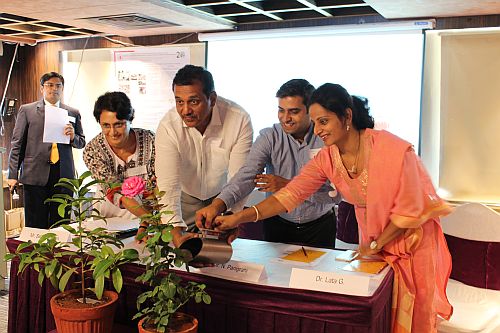 ATREE and Institute of New Energy and Low-carbon Technology of Sichuan University, Chengdu, China, conducted a dissemination workshop on their 10-month project on decentralized solid waste management policy innovation in Bengaluru, on March 10. The project was an attempt at plugging gaps in Bengaluru’s Solid Waste Management Policy, focusing on bulk generators. Among the many interesting insights, the project found that it is profitable to invest in apartment-level wet waste composting systems. |
International Day of Forests |
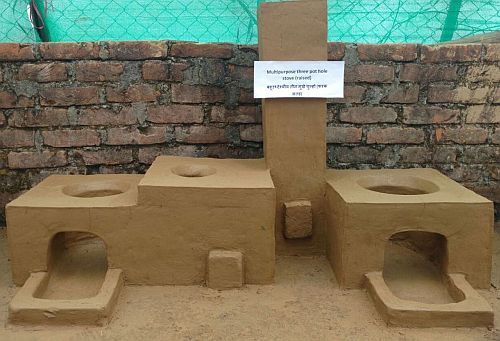 ATREE organised an orientation and demonstration fair for Improved Cooking Stoves (ICS) to increase the transition to low-carbon alternatives. The fair also helped local Self Help Groups market their products such as pickles, woven wear, honey, vegetables, and mushroom. A study by ATREE in the Singalila National Park and Senchal Wildlife Sanctuary estimated that over 21kg of wood is consumed by villages in these areas per day. This consumption not only leads to a loss of forests and carbon emissions but also comes at a great health risk. |
World Water Day |
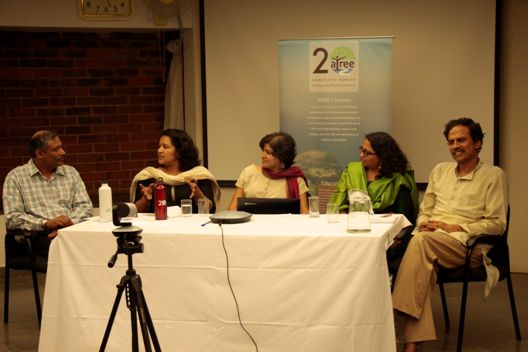 ATREE organised a YouTube Live panel discussion on whether wastewater is a curse or an untapped resource. Moderated by Dr Veena Srinivasan and participated by Dr Priyanka Jhamwal, Dr Sharachchandra Lele, Dr Durba Biswas and Dr Jagdish Krishnaswamy, all of whom are researchers at ATREE. The debate focused on issues of waste-water treatment infrastructure in India. While there is ample potential for India to adapt to a circular water economy, treatment standards and issues of social equity must also be addressed. |
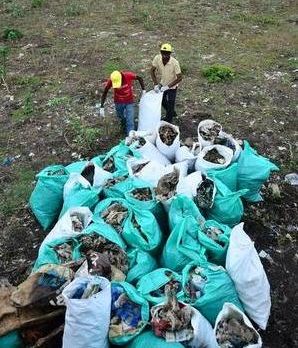 On the World Water Day, the district collector of Tirunelveli district, Tamil Nadu, inaugurated wetland cleanup programme, initiated by ATREE. The Tamirabarani Wetland Rejuvenation Programme, co-organised by the ATREE’s Agastyamalai Community Conservation Centre and Nellai Nature Club, Rotary Club, and the Public Works Department (Department of Tamil Nadu), by will cover the Tirunelveli and Thoothukudi districts. 2,518 tanks in the Tamirabarani Basin irrigate 1.30 lakh acres of land. However these wetlands are under serious threat from improper sewage disposal, fertilizer and pesticide run-offs, and industrial pollution. |
PerspectivesGrasslands are losing harriers, and farmers are affected |
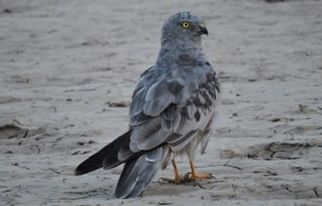 Dr T Ganesh, Fellow, ATREE and Prashant MB, Senior Research Associate at ATREE write about how the decline in India's harrier population hurts its farmers. “Harriers are solitary tireless wanderers scanning open agricultural lands, grasslands and thin scrub jungle relentlessly for insects, lizards, rats and birds to prey upon. Harriers are also indicators of the health of grassland ecosystems. They feed on locusts or grasshoppers that can be harmful to agriculture.” However, habitat degradation, increased use of insecticides and pesticides, and rampant conversion of grasslands has led to a significant reduction in their numbers. |
Teetering relationship between humans and animals of Ganga |
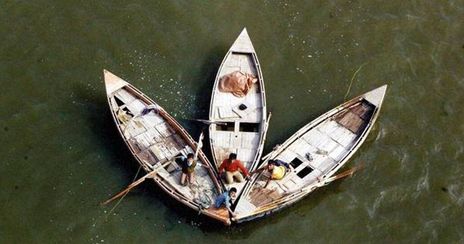 Nachiket Kelkar, a PhD scholar at ATREE writes about Fishing in Ganga's Troubled Waters. The article delves into the prevalence of mafias that dominate fishing in the region through harsh practices. With more attention given to dolphin conservation fisher communities have been relegated to the peripheries of policy making. In the protected waters of the Vikramshila Gangetic Dolphin Sanctuary, Forest departments earn a quick buck by seizing the nets of fishermen, while ignoring the highly destructive ones set up by the mafia. “The relationship between the fishing community and animals teeter somewhere between desperation and animosity.” |
How do we recover endangered species |
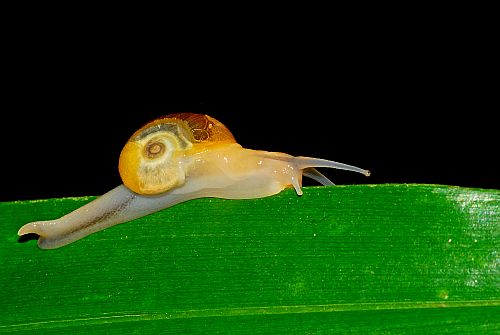 ATREE Fellows Aravind Madhyastha and Ravikanth G. write about the need for a national policy to recover endangered species. An exponential increase in unplanned changes of landuse for developmental purposes has also led to an increase in the number of species listed on the IUCN Red List of Threatened Species. The 2016 report by IUCN has listed 1052 species in the Red List of which, 75 animals and 77 plants are listed as Critically Endangered. In the absence of a central policy for all the endangered species, the scientific knowledge on their recovery is limited to charismatic species. As a result, conservation of wild plants and lesser known animals has not been adequately addressed. |
Certifications of Darjeeling’s organic tea estates |
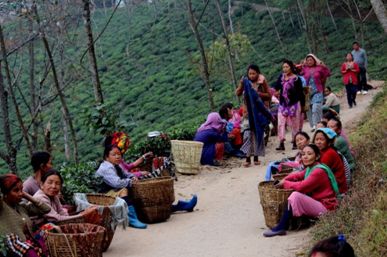 The tea-forest landscape of Darjeeling provides such safe habitats for several animals. Annesha Chowdhury, a PhD scholar at ATREE, asks what going organic means for biodiversity conservation and human wellbeing. While Organic or Rainforest Alliance and Fair Trade certification for tea "requires a ban on hunting, conserving wetlands, woodlands and wildlife, sustaining ecosystems and offering improved working conditions for hired hands and an access to a share of the premiums earned, in practice, it merely involves ticking off a checklist without evaluating actual impacts on the ground. Biodiversity monitoring efforts are scarce and worker income remains much lower than India’s basic minimum wage rate for agriculture" |
In the News |
Save water |
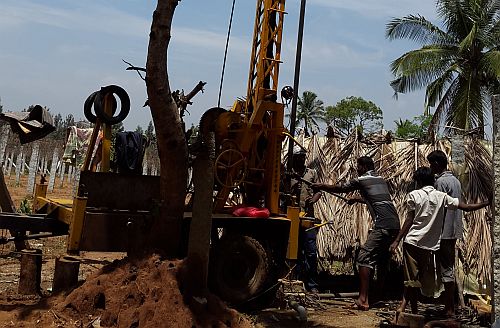 An article in the Deccan herald on the World Water Day interviewed a cross section of the society to raise awareness on water conservation - every drop matters. ATREE’s Sharachchandra Lele insisted on sharing of borewells with those whose borewells have failed or where Bangalore Water Supply and Sewarage Board supply has declined. |
Protecting dolphins |
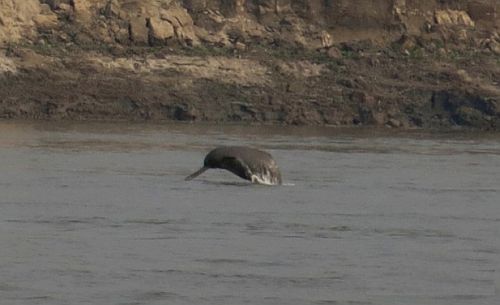 An article in the Hindustan, a national Hindi-language publication reported on the deployment of Sound wave technology to collect data about dolphins. This technology was used by ATREE researchers Dr Jagdish Krishnaswamy, Nachiket Kelkar, and Tarun Nair to gather data on the state of dolphins in the river Ganga. An article in the Hindi-language newspaper Prabhat Khabar also covered ATREE’s work on dolphin conservation. The article stressed on the importance of dolphin conservation and technology to facilitate the same. |
Industries polluting river |
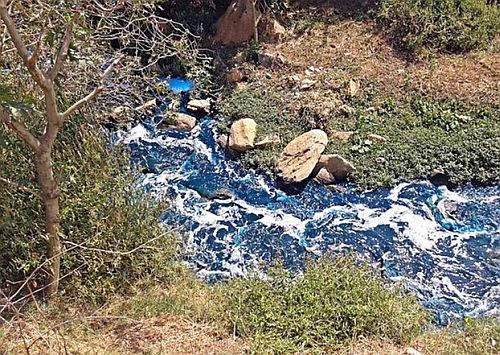 Since the banning of dying units along the Noyyal river of Tamil Nadu, several Fly-by-night illegl dying units have sprung up in the drying Arkavathy river. However these dying units are only a one of the problems, the Karnataka State Pollution Control Board is finding hard to cope with. ATREE’s Sharachchandra Lele was quoted as saying that illegal dyeing units contribute in a ‘relatively smaller way’ to pollution of the river. The bigger problems are industries in the Peenya area that dump heavy meatels into the rivers unchecked, and sewage. |
Conserving local wetland |
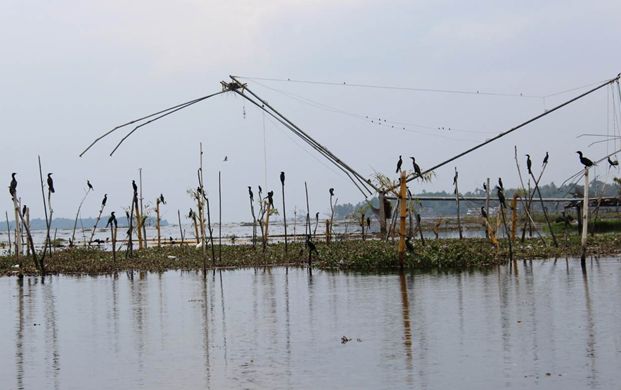 The Thomson Reuters Foundation News writes about such innovative systems developed by the fisherfolk of the Vembanad Lake, Kerala, to conserve the wetland and their livelihoods. The fishers not only keep a check on clam theft but also tackle pollution, having been trained in such methods by ATREE’s Vembanad Community Environmental Resource Centre. The article also reports on the Centre’s 'bottom-up conservation model.' |
Conservation of Gandak river basin |
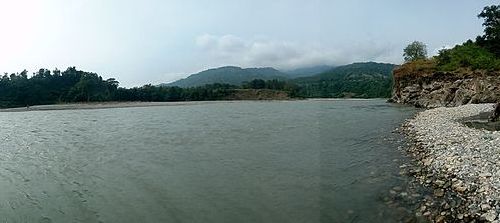 Aquatic life in Gandak river faces a threat due to low flow of water in the river. Hindustan reported about ATREE's Dr Jagdish Krishnaswamy's CHANSE study which attempts to conserve the flora and fauna of the Gandak river basin. |
The priest who hunts for orchids |
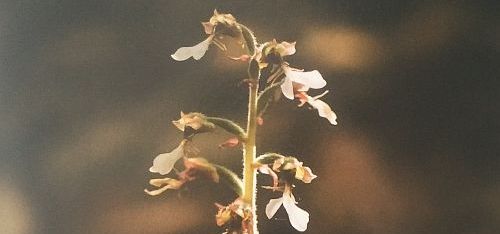 Yahoo News profiled ATREE’s research associate, Dr Naresh Swami, a priest who turned orchid hunter. He has documented 530 species of orchids in Sikkim and holds the record for the number of species found and studied by a single person from the region. He also reported the ghost orchid, which as of 2005 was considered to be extinct. |
Forest fires rage across Karnataka |
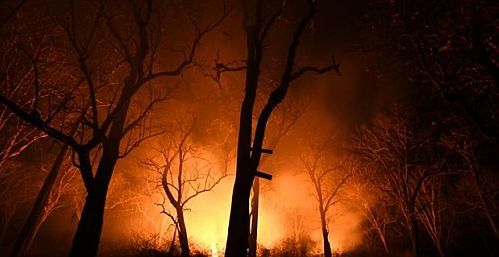 With drought being declared across the state, the onset of summer has been a strenuous one for Karnataka’s forests. The state lost 715 sq km of green cover to fires. Dr Siddappa Shetty of ATREE was quoted as saying that the invasive species Lantana camara could be responsible for the uncontrollable nature of the fires. |
Lantana- disrupting Indian forests since colonial times |
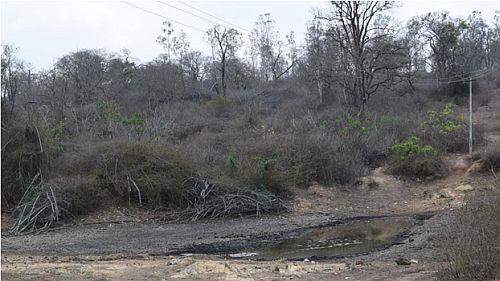 A Hindustan Times article highlighted how a colonial legacy plant, lantana camara, is destroying Karnataka’s forests. The article quoted Dr Siddappa Shetty of ATREE who spoke about how ground fires, in the past, helped in rejuvenating the forests. With the invasion of Lantana, which over drought ridden summers becomes very dry, ground fires have started to invade the canopy too, exacerbating the adverse impacts of forest fires. |
Not all hope is lost for the red headed vultures of Moyar |
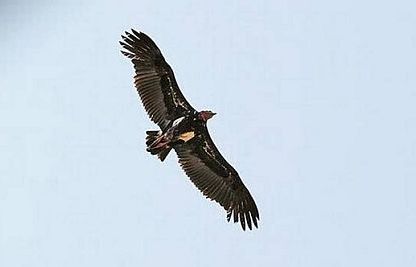 Moyar Valley is one of the refuges of a critically endangered species of vulture known as the red-headed vulture (Sarcogyps calvus), or the Asian king vulture. Dr. R Venkitachalam, a research associate with the Ashoka Trust for Research in Ecology and the Environment (ATREE) was quoted in the Hindu on the conservation of the vultures. He said, "More than 90 % of the population has already been lost, and there are around four to five pairs in the Moyar Valley. We have also spotted juveniles, indicating that they are breeding." |
Dog-wildlife conflict in IIT Madras |
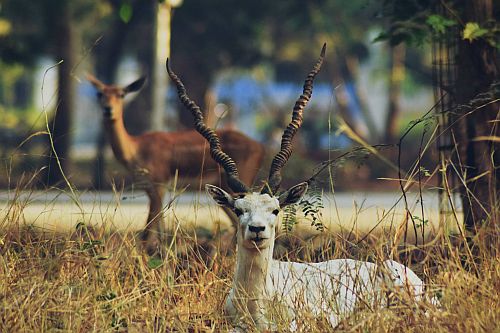 The Scroll.in reports on The growing population of dogs at IIT-Madras is threatening its resident blackbucks. The article quotes ATREE's Fellow, Dr Abi Tamim Vanak who spoke of how dog populations are on the rise due to improper garbage disposal and feeding of dogs. While sterilisation programmes are a long-term strategy to control dog population, immediate steps such as proper waste disposal, banning the feeding of dogs, and removal of dogs from the campus needs to be taken to ensure the safety of blackbuck and cheetal populations in the campus. |
BWSSB's ambiguity on sewage treatment |
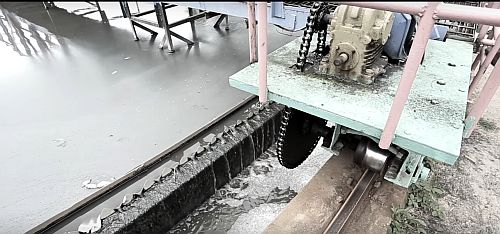 Bringing a sigh of relief to Bengaluru's citizens, the Bangalore Water Supply and Sewerage Board (BWSSB) relaxes STP rule for apartments. The article in the Hindu quotes ATREE's Dr Sharachchandra Lele on fundamental issues that the state agency has failed to address. Additionally, with BWSSB beginning to construct big STPs to treat the city's wastewater, the agency's mandate has become ambiguous as apartments are doing the same too. |
Taxonomy matters |
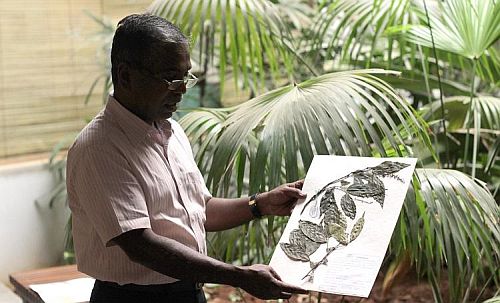 In an article (Taxa files) that talks about the importance of taxonomy, a branch of science that classifies and names organisms, Dr R Ganesan, a fellow at ATREE, talks about the importance of field observations when it comes to documenting organisms and appreciating its intricate details. Dr Ganesan also spoke of the misconceptions that the field of taxonomy has been adequately explored, which has perhaps led to a decline in interest in the subject. |
Accolades |
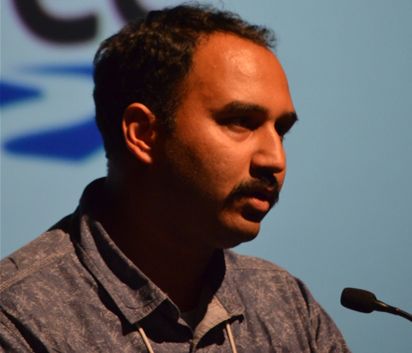 ATREE’s PhD Scholar, Nachiket Kelkar, is one of the recipients of this year’s New India Foundation Fellowship. He will use the support from the Fellowship to write up his Ph.D work on floodplain dynamics, institutions and fisheries in Bihar. Nachiket was among the 9 chosen for this year’s awards. The fellowships are awarded for a year and carry a monthly stipend of Rs 1 lakh. By the end of the year, the fellowship holders are expected to publish original works that are an extension of their proposals. Congratulations, Nachiket! |
Website: www.atree.org |




|